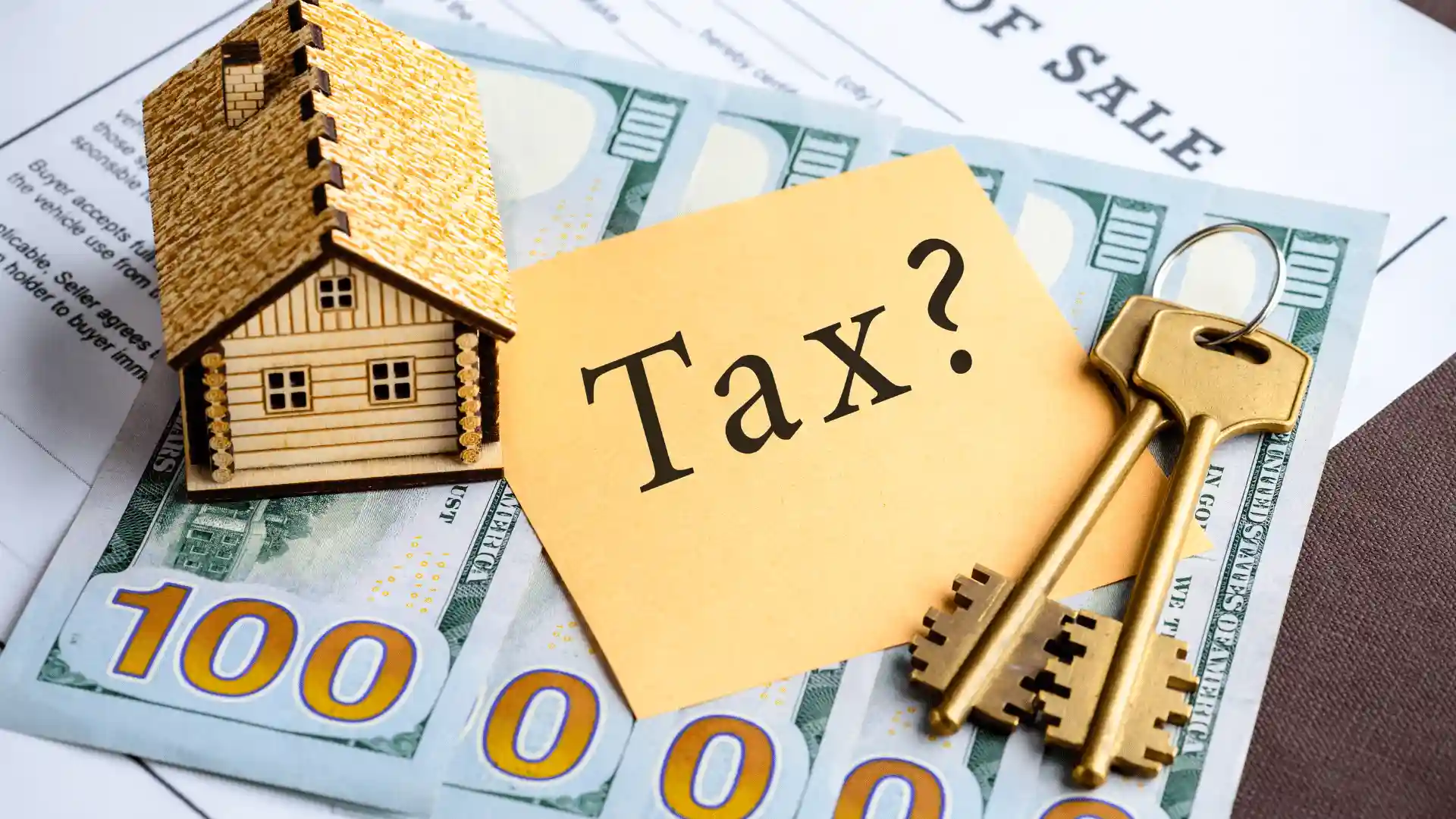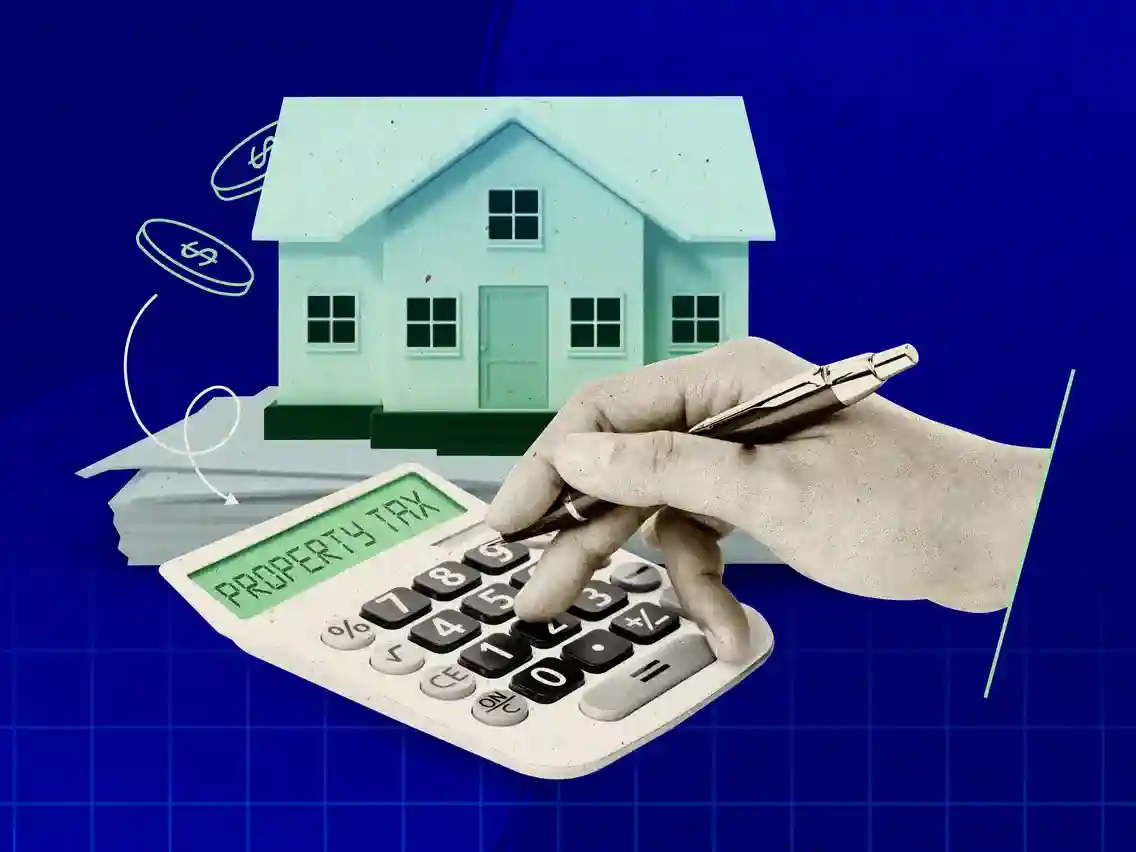In America, the idea goes back to the beginning of the Republic. In 1776, Adam Smith was in favor of property taxes.
As stated by the International Association of Assessing Officers, the idea of taxing privately owned land to pay for local government has been around since at least 6,000 B.C.
Bloomberg says that economists usually like property taxes, but most people who pay it would disagree.
Who is right then?
Is life better where property taxes are low or does the whole community benefit when the government has a large tax pool to draw from? Well, like most things in life, living in a place with low property taxes has its pros and cons. Let’s look at the pros and cons and then go into some of them in more detail.

Property tax is a tax levied on real estate that is owned by an individual or another legal entity, such as a corporation. (Photo: vistaresidences.com)
Advantage: Low property taxes mean low housing payments every month.
SmartAsset says that the average real estate tax in New Jersey, which has the highest property taxes in the United States year after year, is 2.26%. The average Garden State homeowner, based on last year’s $451,704 home price, as reported by Zillow. SmartAsset says that a $1,971 property tax bill in dirt-cheap Hawaii costs 0.27% of that, or about $164 a month. In this case, the average person living in Hawaii would be more than $40,000 richer than a person living in New Jersey after five years.
Even if you don’t own a home, you still have to pay. The cost of taxes is passed on to tenants by landlords. When taxes are high, so are rents.
Disadvantage: Public schools give you what you pay for.
Public schools are paid for by property taxes, which helps not only students and their parents but also business owners who want to hire educated workers and the whole community, which benefits from having a more educated population.
As well-paid teachers, small classes, and modern facilities and equipment rely on spending more per student, kids who live in areas with high property values attend good schools. Low-income children can expect a different school experience.
Advantage: It’s easier to own a home and retire.
When taxes are low, monthly payments are also low. This means that homebuyers in low-tax areas can afford more house and find it easier to get mortgages. Lower axes increase home values when selling.
Also, putting property taxes in place could stop investors or builders from starting new projects to build homes. High property taxes could also force people to move away, which would be bad for the neighborhood as a whole.
Lastly, it’s much easier to live on a fixed income in places with low taxes. This makes budgeting in retirement less expensive and more predictable.
Disadvantage: Property taxes money pays for important local services.
The Lincoln Report on Land Policy says that almost half of all tax money goes to public elementary and secondary schools. But police, fire, EMS, and other services that keep people safe on the front lines also depend on property taxes. The money from real estate taxes is also used to pay for public services like local animal shelters and to build and maintain roads. If property taxes are lowered, these services will be cut off.
So, are property taxes bad, good, or somewhere in the middle?
The Tax Policy Center says that people who support property taxes say that real estate taxes are like a cover charge for living in a community with police protection, educated people, and other property-tax-supported services work. They think of homes as capital, and since wealthier people tend to have more capital, they think the property tax is a progressive tax. Advocates say that the system favors low-income households because public schools have more kids and use emergency services more often, even though they pay less in taxes than higher income households, which use these services less.
People who don’t like the property tax think it’s unfair because it doesn’t take income into account. They think of it as a tax on consumption, just like the regressive sales tax, and not on capital. This is a strong argument, especially since low-income families spend more of their money on housing and landlords pass property taxes on to renters.
Both sides of the argument have good points, but one thing is for sure: it’s an easy tax to dislike.
Property taxes can go up even if the homeowner doesn’t do anything, like make more money or spend more money. This makes it very hard to budget for the long term.
Also, it stands out so much.
Bloomberg says that it’s the last big tax that most people have to pay on their own. Income taxes and Social Security taxes are taken out of your paycheck, and sales taxes are paid by stores when you buy something. You must still write a check for property taxes or put money in an escrow account to give your money to the government, which is something no one has ever liked doing.
Read More:
2023 Tax Season: What Happens If You Don’t Pay Your Taxes?
2023 Tax Season: Tips to Pay Lower Percentage in Taxes
2023 Tax Season: Taxes on Severance Pay, Sick Pay, and Payment for Vacation Days

